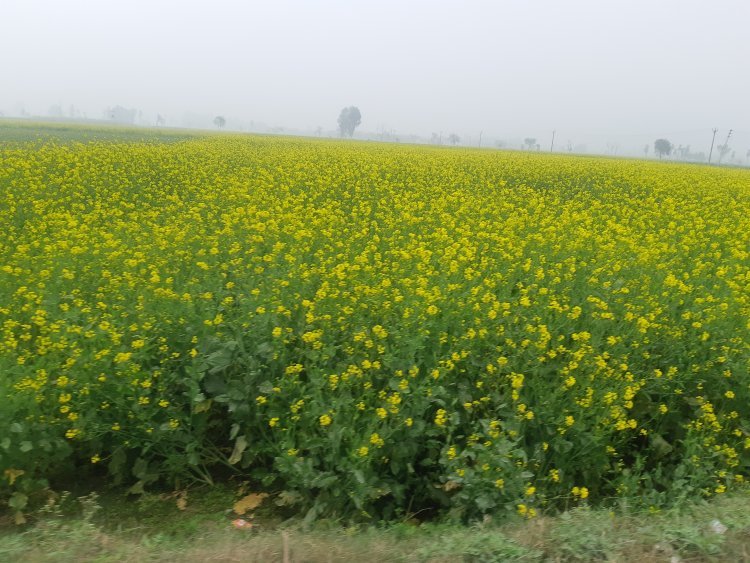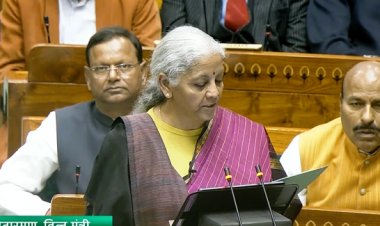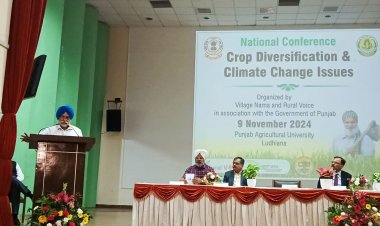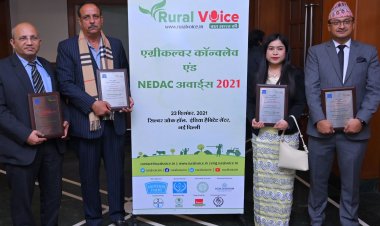HTBt cotton and GM mustard set to get GEAC approval; first for any GM crop in 20 years
The commercial cultivation of GM crops may get approval in the country after 20 years. These crops are HTBt cotton and GM mustard. According to highly placed sources, the road to approval of commercial cultivation of these two crops has almost been cleared. The mere formality of approval from the GEAC remains. As per the information obtained by Rural Voice, the sub-committee appointed by GEAC has submitted its report to the latter. Positive recommendations have been made in this report for the commercial cultivation of HTBt cotton and GM mustard.

The commercial cultivation of genetically modified (GM) crops may get approval in the country after 20 years. These crops are herbicide-tolerant (HT) Bt cotton, called HTBt cotton, and GM mustard. According to highly placed sources, the road to approval of commercial cultivation of these two crops has almost been cleared. The mere formality of approval from the Genetic Engineering Appraisal Committee (GEAC) remains. As per the information obtained by Rural Voice, the sub-committee appointed by GEAC has submitted its report to the latter. Positive recommendations have been made in this report for the commercial cultivation of HTBt cotton and GM mustard.
Earlier, it was in 2002 that Bt cotton, a GM variety of cotton, was approved for commercial cultivation for the first time. Since then, no GM crop has been given approval for commercial cultivation. The Bt cotton varieties had been developed by the American company Monsanto and the Indian company Mahyco, in which the technology was Monsanto’s.
According to the said source, the GEAC-appointed sub-committee had been asked to study the adverse effects of the HTBt cotton variety and give its recommendations. Since it did not receive any such evidence with regard to HTBt cotton, it has given a positive report for approval to the variety. One of the members of the committee says that the cultivation of HTBt cotton has already been going on illegally in the country in about 30 per cent of the area. Seeds are being supplied for the same illegally. Given this, it would be better if it is given approval so that farmers may get seeds of the right quality and seed sellers may be held accountable in case of any defect.
Approval likely for GM mustard also
The other crop likely to get GEAC approval is GM mustard. Mustard plays a key role in the supply of edible oils in the country. But we have constantly failed on the front of increasing mustard productivity. Scientists argue for this that the solution lies in giving approval to the cultivation of GM mustard. Dr Deepak Pental, the ex-Vice Chancellor of the University of Delhi, had developed Dhara Mustard Hybrid-11, otherwise known as DMH-11, a genetically modified hybrid variety of mustard. Its commercial release is yet to get approval. It is in favour of approval to the commercial release of this variety that the sub-committee has given its recommendations.
Dr Pental created DMH-11 through transgenic technology, primarily involving the Bar, Barnase and Barstar gene system. The Barnase gene confers male sterility, while the Barstar gene restores DMH-11's ability to produce fertile seeds. The process also involves the insertion of a third gene called Bar. A patent had been obtained for this GM event in the US in 1991. Dr Pental has “tweaked” the process and he, too, has obtained its patent from the US. The Varuna species of mustard has been used for this GM variety.
What is interesting is that DMH-11, the GM mustard variety based on Dr Pental’s Barnase-Barstar technology, had even been given approval in the 133rd GEAC meeting. Immediately later, however, the approval was stayed in its 134th meeting.
A senior agricultural scientist says that canola varieties based on the Barnase-Barstar system are being cultivated on a large scale in Canada. Hybrid canola varieties are being cultivated on 21mn acres in Canada. The ill-effects of GM mustard on bees have been said to be at the root of the fear of its adverse effects. The said apprehension was that a reduction in the number of bees due to this will lead to a loss in the natural pollination process, which in turn will have an adverse effect on agricultural production. In Canada, however, there has been a far greater increase in the number of bee colonies in spite of the increase in the area under canola cultivation. According to a report, while the area under canola cultivation has increased from 10mn acres in 1988 to 21mn acres in 2019, the number of bee colonies has gone up from a level of about 10mn to 25mn during the same period.
One of the members of the sub-committee told Rural Voice that better-quality hybrid varieties were necessary to increase mustard production. The hybrid varieties of several private companies are selling in the market. But a high level of productivity can be attained only with the approval of the GM variety. India is not able to come out of the cycle of import dependence in the case of edible oils. In such a situation, subsequent to the approval given to GM mustard, its better GM varieties can bring about a steep hike in oil production. This is what happened in the case of cotton. GM cotton put an end to import dependence and enabled India to become a large cotton exporter, too.
Prof. KC Bansal, Secretary of the National Academy of Agricultural Sciences (NAAS) and former Director of the National Bureau of Plant Genetic Resources (NBPGR), said to Rural Voice, “Barnase–Barstar is a proven GM technology for hybrid development in mustard. We must promote this technology and the resultant GM mustard hybrid for the benefit of farmers, consumers and the nation for reducing our dependence on oil imports. Further, the transgenic mustard parental lines developed using Barnase and Barstar genes will prove useful for transferring these genes into more diverse parental lines for developing more hybrids with higher yields.”
As far as the issue of GM crops is concerned, it has been a controversial one. A large section has always stood in its opposition. After the approval given to the commercial cultivation of GM Bt cotton in 2002, Bt brinjal was another GM crop to have been given GEAC approval in 2009. It had been developed by the private seed company Mahyco in collaboration with the University of Agricultural Sciences, Dharwad; Tamil Nadu Agricultural University, Coimbatore; and ICAR-Indian Institute of Vegetable Research (IIVR), Varanasi. But the Supreme Court-appointed Technical Expert Committee (TEC) imposed a 10-year moratorium on its commercial cultivation that continues to this day. The Agriculture Minister has conveyed to the Parliament that field trials of the Bt brinjal variety developed at the domestic level have been approved for the 2022-23 season. But the condition of obtaining a no-objection certificate (NOC) from the respective state government has been imposed for this.
The government had given approval in March to develop new varieties through the SDN-1 and -2 categories of genome-edited plants. Guidelines for this were issued in May and the SOP, too, was issued in this regard in September. These moves from the government send the signal that it is changing its stance on the subject of approval for GM crop varieties. If the commercial release of the HTBt cotton and GM mustard is shown the green flag, it will be for the first time in the country in 20 years that a GM crop gets approval for commercial cultivation.



 Join the RuralVoice whatsapp group
Join the RuralVoice whatsapp group







































